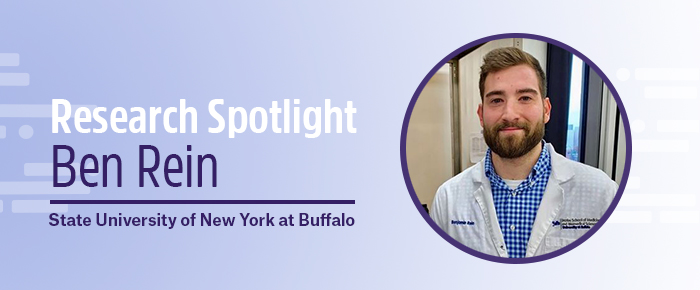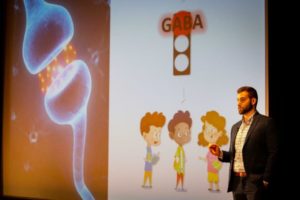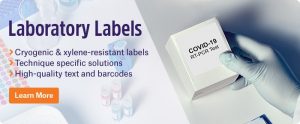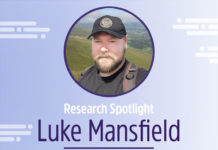 This week we spotlight Ben Rein, a neuroscience Ph.D. student at SUNY (State University of New York) Buffalo in the Jacobs School of Medicine and Biomedical Sciences. He is working in the lab of SUNY Distinguished Professor Dr. Zhen Yan, whose lab studies both autism spectrum disorders (ASD) and Alzheimer’s disease. Their overall goal is to investigate how synaptic transmission deficits contribute to these disorders and identify therapeutic strategies to restore synaptic function.
This week we spotlight Ben Rein, a neuroscience Ph.D. student at SUNY (State University of New York) Buffalo in the Jacobs School of Medicine and Biomedical Sciences. He is working in the lab of SUNY Distinguished Professor Dr. Zhen Yan, whose lab studies both autism spectrum disorders (ASD) and Alzheimer’s disease. Their overall goal is to investigate how synaptic transmission deficits contribute to these disorders and identify therapeutic strategies to restore synaptic function.
Genetic causes of Autism
Autism is a disorder, diagnosed 1 in every 54 children, that affects how the brain develops and can make socializing very challenging. Since a large portion of autism cases are caused by gene mutation, Ben’s work has mostly focused on studying a specific genetic risk factor for ASD called the 16p11.2 region (position 11.2 on chromosome 16). This section of chromosome 16 is susceptible to being either deleted or duplicated. Both changes are associated with ASD and many other neurodevelopmental disorders, such as intellectual disability, epilepsy, and more.
By isolating and studying these gene mutations, the goal is to identify treatment strategies that may improve the social symptoms associated with autism. With this goal in mind, Ben’s work uses mouse models of ASD to evaluate social behavior. He studies transgenic mouse models of both the 16p11.2 deletion and duplication and found several synaptic and biochemical changes in the prefrontal cortex. This brain region appears to be critical for sociability, so when significant differences were found, they began isolating and testing further. One of those changes was the pronounced deficit in GABAergic synaptic transmission.
“To get an idea of what might be causing this, we performed RNA-sequencing to identify all genes being expressed at abnormal levels. Through this, we discovered that a gene called Npas4 was significantly downregulated.” Npas4 is directly linked to gamma-Aminobutyric acid (GABA) and is responsible for building GABA synapses. To test this finding, their team infused a virus that caused the neurons to overexpress Npas4 into the mice’s prefrontal cortex with deficits in GABA synapses. This yielded significant results as the neurons began forming GABA synapses and the mice subsequently showed significant improvements in both sociability and cognition.
While these findings may not be enough to extract a feasible treatment approach at the moment for human patients, it implicates Npas4 as a potential therapeutic target in autism and offers a possible explanation for the social and cognitive deficits in those with 16p11.2 duplication. Future researchers will be able to utilize Ben’s work as a toolbox to define the role of Npas4 in autism further.

Social behavior
“This work has demonstrated that by targeting a core molecular mechanism in this brain area, we can improve the social and cognitive deficits in these mice. We have also developed two behavioral protocols for evaluating social behavior in mouse models of ASD. One measures the preference for a social stimulus (mouse) over a non-social stimulus (toy), and the other evaluates social motivation (willingness to enter an aversive environment for social interaction).” These protocols are specifically designed to offer high sensitivity to social behaviors in mouse models. “In a way, these protocols stem from my roots in psychology, as I find modeling complex behaviors in animals very intriguing. However, these can also serve as powerful tools for the field to help us evaluate whether therapeutic drug candidates improve the social symptoms of autism.”
Ben’s background in psychology served as a perfect base going into his Ph.D. research work in autism. His high school curiosity about the natural variance in personalities sprouted questions about the brain and how it differed among people with different personalities. It helped pave the way for his venture into social neuroscience and his Ph.D. work.
I first met Ben on Instagram as he runs a popular account focusing on science education. Still, his biggest social channel is TikTok (@the.brein). He has amassed over 150k followers and continues to educate the public on different science topics, and answers questions from science students looking for guidance and support.
Giving back to future generations
Ben credits his present-day accomplishments and success to his wonderful mentors from his undergraduate studies, which helped him navigate a series of complex and important decisions. Taking inspiration, he realized that just like his younger self, every student in science eventually reaches a few critical crossroads and needs to make certain important decisions. This includes what to major in, how to get research experience, what type of lab to join, and what graduate degree to pursue. These are just a few of the many huge questions that young scientists need to answer that will shape their future careers.
This passion, combined with the many student inquiries, led Ben to create the Aspiring Scientists Coalition, a free organization that provides educational resources to inform science students of all backgrounds. They host monthly meetings for Q&A sessions, networking events among students to connect and share experiences, and guest presentations from scientists to discuss their research and science career path. ASC started in August 2020 and already has over 500 members from 47 countries. “While our main goal is to provide structured information to support students making career decisions, we also hope to build a large, international collaborative network for the future generation of science.”
As the organization grows, they plan to continue connecting students worldwide through networking sessions and mentor-mentee pairings. As for himself, Ben plans to graduate in May of 2021, but his research work in the field is not yet over. He gives us a peek into what’s on the horizon for him, a post-doctorate offer at a top-tier lab. “I am planning to continue studying sociability in general, and that may include the role of Npas4, but I don’t want to give anything away too soon! I’m incredibly excited to move on to this next exciting step and get the ball rolling on what will hopefully be a major breakthrough project.”
LabTAG by GA International is a leading manufacturer of high-performance specialty labels and a supplier of identification solutions used in research and medical labs as well as healthcare institutions.




